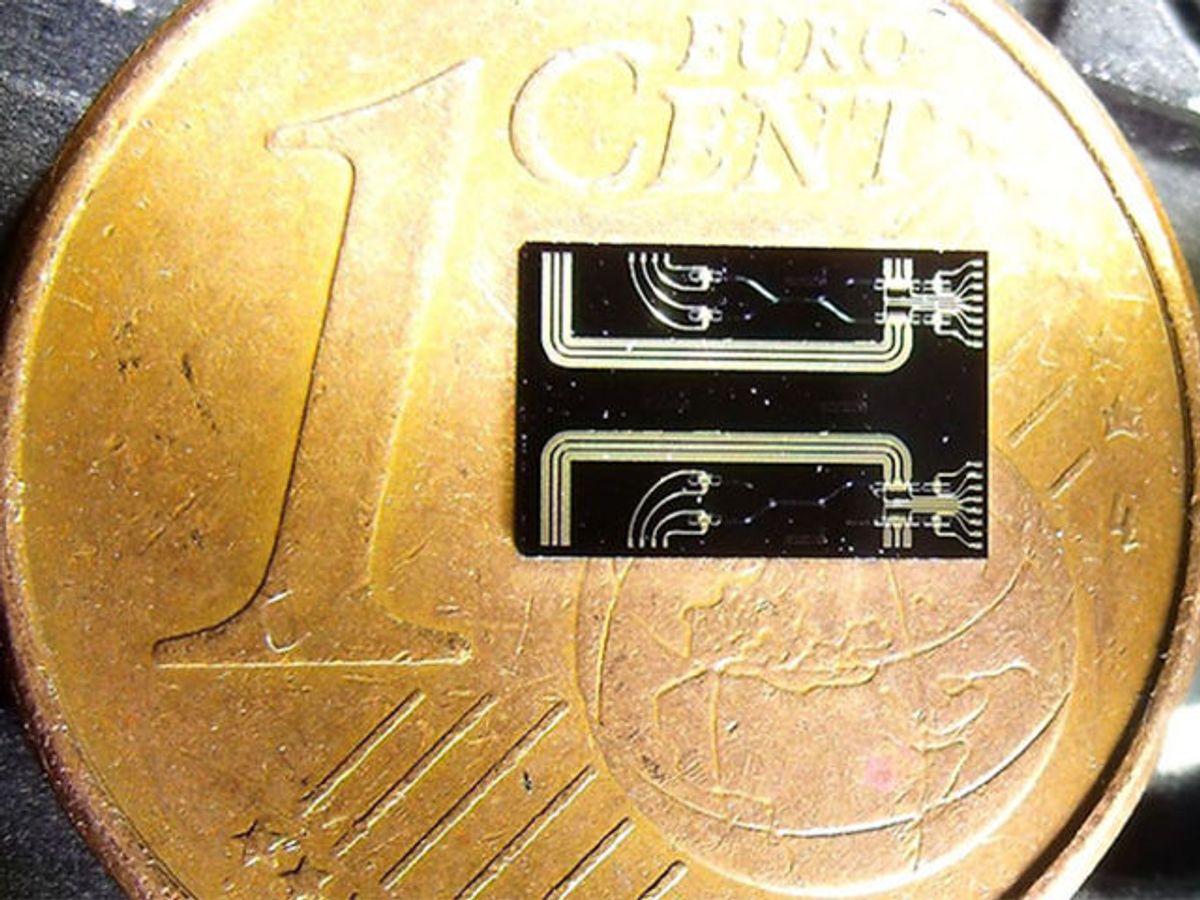Taking advantage of technology developed to manipulate light on chips, a team based in Spain and Italy has created an integrated circuit that can be used to generate true random numbers by taking advantage of the thoroughly unpredictable nature of quantum mechanics.
The compact approach, which might one day find its way into smartphones and tablets, could be a boon for engineers hoping to keep financial transactions and other communications secure. Random numbers are a vital ingredient in the encryption schemes we rely on to secure data, and they’re also a powerful tool in computational modeling.
Today’s conventional random number generation is done using computer algorithms or physical hardware. A chip-based random number generator can, for example, use analog or digital circuits that are sensitive to random thermal fluctuations to generate unpredictable strings.
But even if these sources look quite random, it’s practically impossible to prove they are perfectly so, explains Valerio Pruneri of the Institute of Photonic Sciences in Spain. If you wait long enough—perhaps far longer than you’d care to wait—you may ultimately find there are correlations between numbers, ones that would ultimately allow you to crack the random-number-generation scheme.
Systems that obey the rules of quantum mechanics, by contrast, could be impossible nuts to crack. “Quantum physics, by definition, is fully unpredictable no matter what,” Pruneri says. “There is no way that somebody can guess future numbers based on current information.”
Quantum random number generators are nothing new; there are even commercial systems available. But Pruneri and his colleagues decided to take aim at portability. They wanted to create something that could spit out random numbers at a high rate, but be small and energy-efficient enough that it could ultimately be integrated with microelectronics—perhaps in a package small enough to fit in a smartphone or tablet.
The chip they created takes advantage of standard fabrication techniques used to construct photonic integrated circuits. A small, pulsed indium phosphide laser is responsible for infusing the system with randomness. Below a certain energy threshold, a laser emits a small number of photons through a process called spontaneous emission, which creates light with random phase. This randomness impacts the ultimate phase of the light the laser emits when it’s above that threshold, once stimulated emission starts to dominate, Pruneri explains. The result is that, pulse to pulse, the laser light will have a random phase.
To transform these random phases into something usable, the pulsed light is mixed with light from a second indium phosphide laser on the chip. The phase of the first laser’s pulses will ultimate impact how light from the two laser sources interfere with one another, creating certain brightness differences that can be read out by a photodetector.
This quantum “entropy source” can be used to produce random numbers at a good clip—in the realm of a gigabit per second. The work appears online today in the journal Optica.
Pruneri says the next step is to integrate the chip with conventional CMOS electronics to turn the output of the system into random numbers that can be used by software. Here too, he expects the team will take advantage of photonics integrated circuit manufacturing techniques that have been built up over the years, in particular a way of pairing silicon and other materials, called hybrid integration.
Rachel Courtland, an unabashed astronomy aficionado, is a former senior associate editor at Spectrum. She now works in the editorial department at Nature. At Spectrum, she wrote about a variety of engineering efforts, including the quest for energy-producing fusion at the National Ignition Facility and the hunt for dark matter using an ultraquiet radio receiver. In 2014, she received a Neal Award for her feature on shrinking transistors and how the semiconductor industry talks about the challenge.



